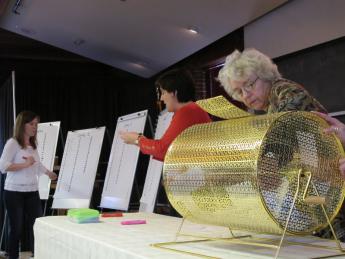Related Topics
Right Angle Club: 2015
The tenth year of this annal, the ninety-third for the club. Because its author spent much of the past year on health economics, a summary of this topic takes up a third of this volume. The 1980 book now sells on Amazon for three times its original price, so be warned.
Philadelphia Schools Success Story

|
| Random Scholarships Lottery |
The experiment was to give scholarships to poverty areas, selected by random lottery, to go to private schools. After a few years, it became possible to see whether these students responded to the new schools, or not. Well, they did, by all sorts of measures. Remember, these kids were picked by lottery and had all sorts of membership. Quite a few with Down's syndrome, for example. So, it was established that improving the schools was worth the trouble and the money flowed in. If you have a really good idea, people will support it. In this case, it proved one thing conclusively: it's the schools that matter.
Now, I would have liked to see the money used to see whether it was most important to improve the principal, or the teachers, or what grade was best, or the street gangs, or racial mixing, or anything else anyone could suggest, whether you think they are bigoted or not. Now that we have a great experimental tool, let's experiment.
Well, the people who run the project decided to use the money to expand the schools, increase the number of scholarships, and strengthen the conclusions. They're probably right because the money and the experience gathered together in this little charity did not originate with social scientists, or even politicians with a cause, but rather with some good-hearted folks who got enlisted into a project. So, while the scientists might want to let the bad schools continue to be bad so they could be studied in more depth, the people running the project, and probably the donors of the money, just wanted to make the schools better. So, they are concentrating on what they know, and they are closing down the proven bad schools. That's okay, too, of course.
If somebody else wants to prove something or test something-- let him raise his own money, to do so.
Originally published: Saturday, August 08, 2015; most-recently modified: Friday, May 31, 2019